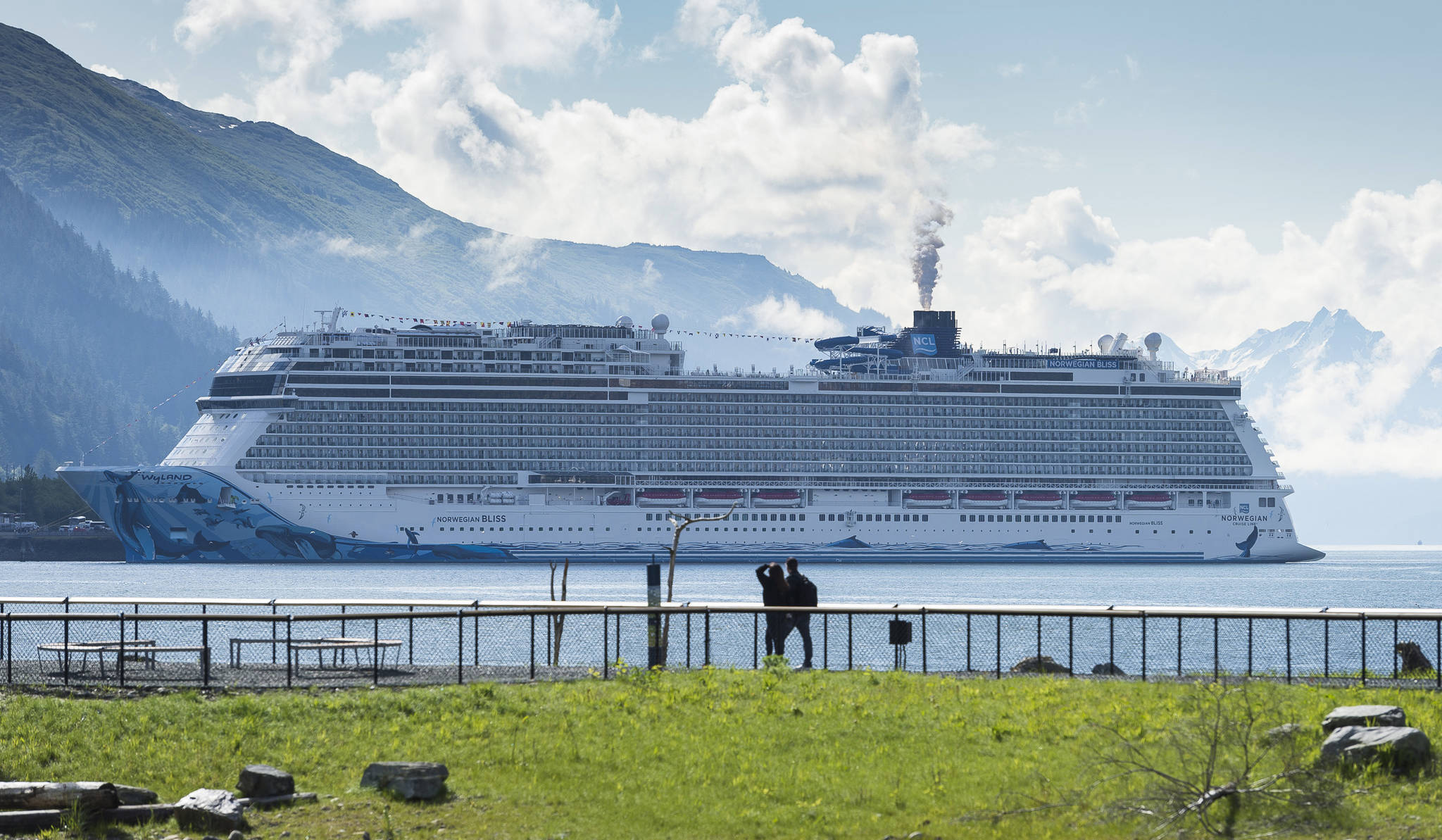There was a great deal of speculation about how City and Borough of Juneau officials would react to U.S. District Court Judge H. Russel Holland’s recent ruling on the cruise industry lawsuit. Cruise Lines International Association lodged the lawsuit in an attempt to clarify the legal and permissible uses of Juneau’s Marine Passenger Fees (MPF) and Port Development Fees (PDF).
In two public presentations last week, CBJ City Manager Rorie Watt laid out the city’s case.
Watt described issues surrounding the lawsuit as “a ball of spaghetti.” While the city has chosen “not to litigate these issues publicly in the past,” Watt explained that now it’s time to take its case to the public.
The timing seems odd since Judge Holland ruled that many of the proposed projects and services to be funded by passenger fees would be considered unconstitutional.
Has the city chosen to abandon legal arguments in favor of a public relations campaign thereby hoping to gain negotiating advantage?
[Opinion: The future of Juneau’s relationship with the cruise industry]
Perhaps. But is that the best way to encourage a mutually agreeable settlement or does it foment further acrimony within the community?
Watt claims that not much will change as a result of the ruling because the city “won” the lawsuit on two major points:
• The ruling reaffirmed the collection of MPF/PDF fees is constitutional.
• The ruling didn’t say the use of past fees was illegal.
Both points, while technically true, ignore that they were not issues CLIA contested.
CLIA has acknowledged the collection of these fees is not necessarily unconstitutional but contend many of CBJ’s uses of revenue generated by the fees are unconstitutional.
[Opinion: With cruise ship lawsuit decided, it’s time for Juneau to reap the benefits]
Moreover, Judge Holland’s decision concerned prospective uses of the fees and therefore did not address the issue of past fees.
Here’s what relevant portions of Judge Holland’s 35-page order did say:
• “Expenditure of MPF and PDF fees for services to passengers only, such as crossing guards, repair and maintenance of sidewalks” are unconstitutional “because they do not constitute a service to a vessel.”
• Furthermore, the order states, “… the question … is not whether CBJ’s use of MPF and PDF funds benefits passengers. Passenger benefits are not relevant. The proper question as to each category of expenditure by defendants is: Does the expenditure provide a service to a vessel? If the answer is yes, the expenditure is constitutional. If the answer is no, the expenditure is unconstitutional …”
• And finally, “Expenditures or fees imposed upon vessels which enhance the tourist experience of passengers brought to Juneau by plaintiffs’ members’ vessels do not qualify as a service to a vessel, even though the enhancement of passengers’ experience at Juneau may benefit plaintiffs’ members financially.”
[Air violations issued to eight cruise ships]
Despite the decision’s clear wording, Watt maintains that expenditures solely serving cruise passengers also benefit the vessel.
Questioned on this point, Watt posits the proposed Archipelago project and debt service funding for the new cruise ship docks as expenditures that could be jeopardized under CLIA’s interpretation. Yet, these projects are prime examples benefiting the vessel, would certainly qualify as constitutional, and haven’t been challenged by the cruise industry.
I have no personal knowledge of the legal strategy of CBJ or CLIA. Nor is it my intention to defend the cruise industry. They have plenty of people capable of doing that. My concern is getting the fairest deal for Juneau.
Everyone needs to consider, what are the risks of prolonging this litigation?
With city legal costs approaching $1 million, the longer this lawsuit drags on, the costlier it will be.
Further judicial pronouncements could be more specific and may enforce compliance. How would this affect potential negotiations with CLIA?
How can we address legitimate concerns about growing numbers of cruise ship visitors while embroiled in a legal battle with the industry?
Public assertions by city officials that don’t square with the facts of the case or Judge Holland’s order complicate opportunities for negotiation. Mischaracterizing the possible consequences of the judge’s decision do not help encourage our elected Assembly to work cooperatively with the cruise industry or to resolve any ambiguities.
It can be a fine line between “spin” and misleading the public.
No one is well served by the latter.
• Win Gruening retired as the senior vice president in charge of business banking for Key Bank in 2012. He was born and raised in Juneau and graduated from the U.S. Air Force Academy in 1970. He is active in community affairs as a 30-plus year member of Juneau Downtown Rotary Club and has been involved in various local and statewide organizations. He contributes a regular column to the Juneau Empire. My Turns and Letters to the Editor represent the view of the author, not the view of the Juneau Empire.

